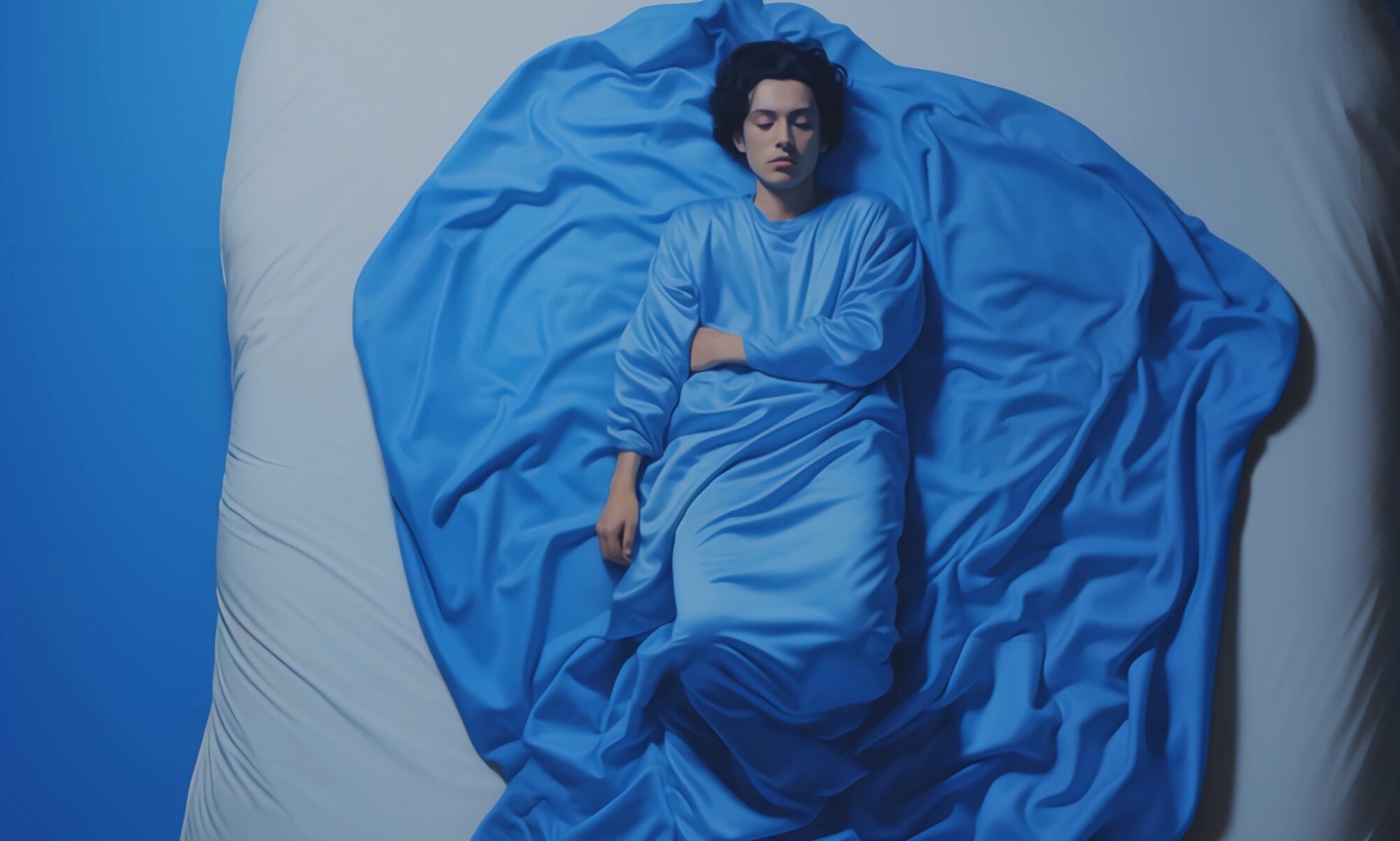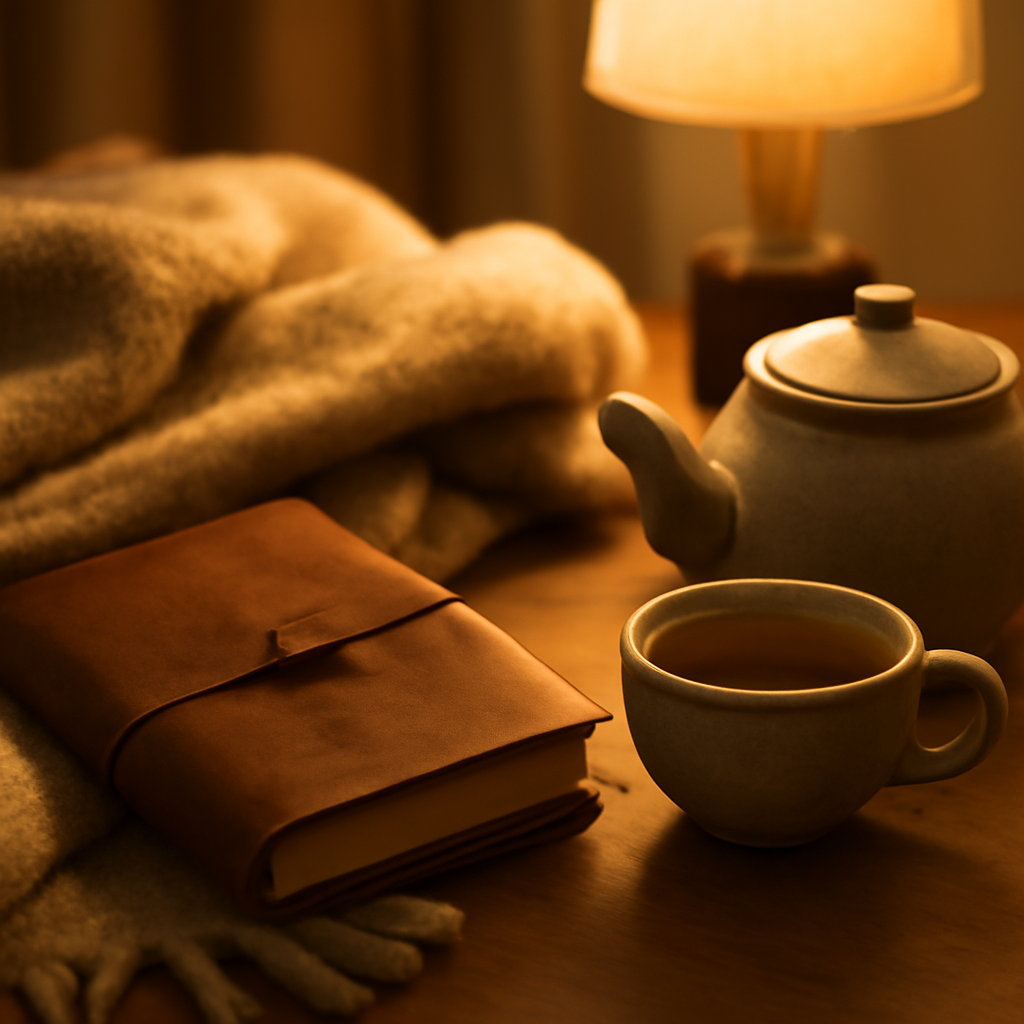Introduction
There’s nothing quite as frustrating as lying awake at night, tossing and turning, unable to drift off despite feeling exhausted. You might have invested in the perfect mattress, the softest bedding, and the most relaxing bedtime routine—but if your bedroom temperature control isn’t quite right, you could be sabotaging your sleep without even realising it.
The connection between temperature and sleep quality isn’t just anecdotal; it’s deeply rooted in our biology. Understanding and optimising your bedroom temperature control could be the missing piece in your quest for truly restorative rest. Let’s explore how transforming your bedroom into a rest haven starts with getting the temperature just right.
The Science Behind Sleep and Temperature
Your body has a remarkable internal thermostat that plays a crucial role in regulating your sleep-wake cycle. As evening approaches, your core body temperature naturally begins to drop—a signal to your brain that it’s time to prepare for sleep. This temperature decline helps facilitate the release of melatonin, the hormone responsible for making you feel drowsy.
Research consistently shows that the ideal bedroom temperature for most adults falls between 16°C and 18°C (60°F to 65°F). When your sleeping environment is too warm, your body struggles to achieve the natural cooling process it needs for deep sleep. Conversely, if it’s too cold, your body expends energy trying to warm up, which can lead to fragmented sleep and frequent awakenings.
Studies from the Sleep Foundation indicate that even a slight deviation from your optimal temperature can significantly impact sleep quality. Participants in temperature-controlled sleep studies consistently reported better sleep satisfaction and fewer nighttime disturbances when their bedroom temperature control was set within the recommended range.
Why Bedroom Temperature Control Matters More Than You Think
Many people underestimate the impact of temperature on their sleep quality. You might assume that comfort is purely subjective—that some people simply ‘run hot’ whilst others ‘run cold.’ Whilst individual preferences certainly exist, the physiological need for cooler sleep environments is universal.
Poor bedroom temperature control can lead to: Difficulty falling asleep—a warm room can delay sleep onset by preventing your body from reaching the necessary temperature drop; Frequent awakenings—overheating during the night often causes micro-awakenings that disrupt your sleep cycles; Reduced deep sleep—the restorative stages of sleep are particularly sensitive to temperature fluctuations; Night sweats and discomfort—waking up drenched in sweat is not only unpleasant but fragments your sleep architecture.
The consequences extend beyond just feeling tired the next day. Chronic poor sleep has been linked to weakened immune function, impaired cognitive performance, mood disturbances, and even long-term health complications.
Practical Tips for Optimal Bedroom Temperature Control
Transforming your bedroom into a rest haven doesn’t require expensive renovations or complex technology—though there are plenty of gadgets available if you want to go high-tech. Here are practical, accessible strategies for achieving optimal bedroom temperature control.
The simplest place to start is with your central heating. Programme your thermostat to lower the temperature in your bedroom about an hour before bedtime. Many modern thermostats allow you to set different temperatures for different rooms, making this easier than ever. If you don’t have central heating control in your bedroom, consider a portable solution—a small electric heater with a thermostat for winter months, or a fan or portable air conditioner for summer, can help maintain that crucial 16-18°C range.
Your choice of bedding significantly impacts your thermal comfort throughout the night. Opt for breathable, natural materials like cotton, linen, or bamboo. These fabrics wick away moisture and allow air circulation, helping regulate your body temperature. Consider layering your bedding so you can easily adjust throughout the night. A lightweight duvet with the option to add a blanket gives you flexibility as your body temperature fluctuates during different sleep stages.
The market is brimming with innovative products designed to help with bedroom temperature control: Cooling pillows use gel-infused memory foam or phase-change materials to draw heat away from your head and neck; Temperature-regulating mattress toppers can be applied to your entire sleeping surface; Cooling mattress pads allow you to set specific temperatures and can cool or heat different sides of the bed independently—perfect for couples with different preferences.
Electronics generate more heat than you might expect. Laptops, televisions, and even charging phones can raise your bedroom temperature. Keep these devices out of the bedroom, or at minimum, ensure they’re powered down rather than left on standby. During summer months, prevent your bedroom from heating up during the day by keeping curtains or blinds closed. Blackout curtains serve double duty by blocking both unwanted light and heat from the sun.
Stagnant air can make a room feel warmer than it actually is. A ceiling fan or standing fan helps create airflow that can make a room feel several degrees cooler. The gentle breeze also provides the added benefit of white noise, which many people find conducive to sleep. If you live in a climate where outdoor temperatures drop significantly at night, consider opening windows to allow cool air to circulate. Just ensure your bedroom remains secure and that outdoor noise won’t disturb your rest.
Certain activities naturally raise your body temperature. Vigorous exercise, hot baths or showers, and even eating a large meal can all temporarily increase your core temperature. Try to schedule these activities for at least two hours before bedtime, giving your body time to cool down naturally. Interestingly, a warm bath taken about 90 minutes before bed can actually aid sleep. The subsequent cooling process as your body temperature returns to normal helps trigger the natural drop associated with sleep onset.
Seasonal Considerations
Maintaining optimal bedroom temperature control requires adjusting your approach with the changing seasons. Spring and autumn bring fluctuating temperatures that can catch you off guard. Keep extra blankets within easy reach and consider a programmable thermostat that can adapt to varying conditions.
When outdoor temperatures soar in summer, achieving a cool bedroom becomes more challenging. Use fans strategically, close blinds during the day, and consider lightweight, moisture-wicking sleepwear. Some people find that placing a bowl of ice in front of a fan creates an effective, low-cost cooling effect.
In winter, the temptation to crank up the heating is understandable, but resist the urge to overheat your bedroom. Layer your bedding and wear warm socks if your feet tend to get cold—the extremities are particularly sensitive to temperature and can significantly impact your overall comfort.
Creating Your Personal Sleep Sanctuary
Achieving perfect bedroom temperature control is about more than just the numbers on a thermostat. It’s about creating an environment where your body feels safe, comfortable, and primed for rest.
Pay attention to how you feel when you wake up. Do you feel refreshed or groggy? Are you waking up during the night feeling too warm or too cold? Use these observations to fine-tune your approach. Sleep tracking devices can provide valuable data about your sleep quality and help you identify temperature-related disruptions.
Remember that it may take some experimentation to find your personal sweet spot. Factors like age, hormonal cycles, certain medications, and overall health can all influence your ideal sleeping temperature. Pregnant women, for example, often run warmer and may prefer slightly cooler environments. Older adults may benefit from temperatures at the higher end of the recommended range.
Conclusion
Transforming your bedroom into a rest haven doesn’t require dramatic changes—sometimes the most impactful adjustments are the subtle ones we overlook. Bedroom temperature control might not be the most glamorous aspect of sleep optimisation, but its effects on your sleep quality can be profound.
By understanding the science behind sleep and temperature, and implementing practical strategies to maintain that ideal 16-18°C range, you’re giving yourself the gift of better sleep. And better sleep means better everything—more energy, improved mood, sharper thinking, and a stronger, healthier body.
Tonight, take a moment to assess your bedroom environment. Is it too warm? Too cold? Just right? Make the necessary adjustments, and prepare to discover how something as simple as bedroom temperature control can transform not just your nights, but your days as well. Sweet dreams await in your perfectly tempered sleep sanctuary.


